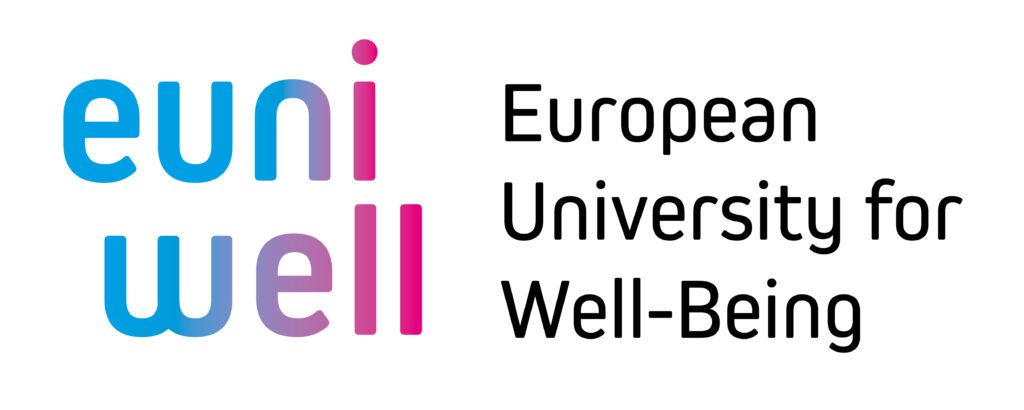Beatrix Busse is Professor of English Linguistics and the Vice-Rector for Student Affairs and Teaching at the University of Cologne, in Germany. Beatrix is also the Chief Development Officer for the EUniWell Alliance.
Arnaud Guével is Vice President for Learning, Teaching and Open Education at Nantes Université, France. He is a promoter of Open Education policies both in Nantes and in EUniWell.
Colin de la Higuera holds the Unesco Chair for Open Educational Resources and Artificial Intelligence at Nantes Université, France. He is also coordinator of the UNOE network and of the Open Education theme at EUniWell.
Between the 3rd and the 27th of March we published twenty-three good reasons to adopt Open Education. Colleagues and friends from four continents, in eight languages, have brilliantly defended the reason they chose.
Readers will have by now identified their own reasons. Possibly some are even disappointed because their reason might not be on the list! We encourage sequels and contributions.
In today’s post, we will argue in favor of what we dare to call a “meta-reason”. This neologism covers the idea that well-being – which is what we are going to promote – encompasses many aspects, quite a few of which have been addressed already in the previous twenty-three.
Well-being is the key theme of the European Universities alliance EUniWell – The European University for well-being, uniting today 11 Universities over 9 European countries.
EUniWell’s approach to well-being is holistic, multi-dimensional, and addresses all missions to analyse and improve individual societal and planetary well-being. It includes five core thematic arenas – health and well-being, social equality and well-being, environmental change and well-being; culture, multilingualism and well-being, and teacher education. This is not a definition yet, but you can see the scope of EUniWell. We would define well-being as subjective well-being – things going well – and add a eudaimonic touch to it, meaning that well-being also comprises leading a life with a purpose.
Our approach and conceptualization of well-being entail several dimensions relevant to open education and learning and educators and learners.
Let’s first focus on the student’s perspective. Here are some aspects that matter: being able to have access to a diversified approach to the topics that one is studying, this access being free and the learning material being open, being part of the development of the courses and the courseware, and being involved in the democracy of the universities.
The student’s well-being can also be enhanced because they can easily and safely exchange material with other students elsewhere, and reuse the learning material they have accessed during their studies in any situation and at any stage of life.
Well-being is also about being in the best conditions to make choices. In an open environment, this can mean seeing what the studies are about, having ample information about what the course contains. Even before going to university, it means having a true access to the elements allowing to make that choice.
The educator’s well-being can come through a better understanding of their mission. To put it bluntly: Is it their job to confiscate knowledge or to spread it? A straightforward question? Not really, when the knowledge they have co-created is on platforms with paywalls… And when the knowledge they have created cannot be disseminated because of a lack of licensing understanding, how is sharing possible?
Educators know that there are students and other teachers, in their university, in EUniWell and anywhere in the world, who need this knowledge, often produced thanks to public funding.
Frustration is certainly not a component of well-being, and yet there is a lot of frustration in universities today. Teachers are endlessly frustrated by finding it difficult to obtain recognition for their work. In part, this is because this work is too often hidden and can only be seen by their students. Opening education would, as a side result, allow to give visibility to the pedagogical initiatives.
Those teachers and students who don’t master the English language suffer discrimination at University today. Their difficulty may not just be because they haven’t worked hard enough: some get more chances to travel and speak English than others. Well-being should include the capacity to study and teach in one’s chosen language. Tools are being produced nowadays who give us the possibility of a multilingual issue. This blog is just one example.These tools, relying on artificial intelligence, are imperfect and raise their own questions.
This same artificial intelligence is also the cause of anxiety today. Even for those who believe in its benefits, there is the understanding that AI generates new situations that require both careful analysis and swift answers. This seems a contradiction, and, in the context of teaching, closed doors and top-down management are especially problematic. Open education offers alternative ideas, where knowledge can be shared much faster and in the common interest: consider the case of Wikipedia. Today’s experience about how to deal with AI, and use AI is shared much more horizontally. Understanding the mechanisms of sharing, and providing the open platforms to do this are equally necessary.
Well-being contains a social component, requires the development of critical thinking, and should not be ephemeral. These are some of the important aspects of the Open Education agenda that have been addressed during this series of blog posts; check them out while you are on the blog!
EUniWell, the European University for Well-Being, takes a holistic approach to well-being, encompassing the individual, societal and environmental dimensions. This vision is aligned with the United Nations Sustainable Development Goals, particularly those related to health and well-being (3), quality education (4), gender equality (5), reducing inequalities (10), and environmental sustainability (13). The main mission of EUniWell is to understand, improve, measure and promote the well-being of individuals, our community and society as a whole, based on common values such as democracy, inclusiveness, diversity, interdisciplinarity, entrepreneurship and co-creation.

“Open Education for Well-Being” by Beatrix Busse, Arnaud Guével & Colin de la Higuera is licensed under CC BY 4.0

